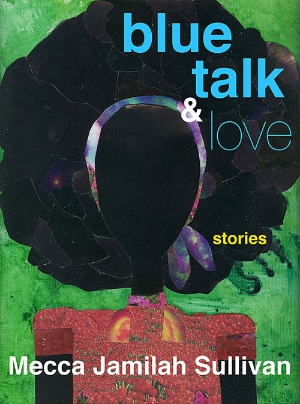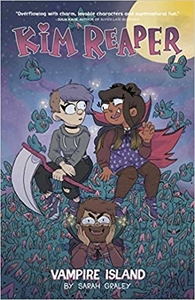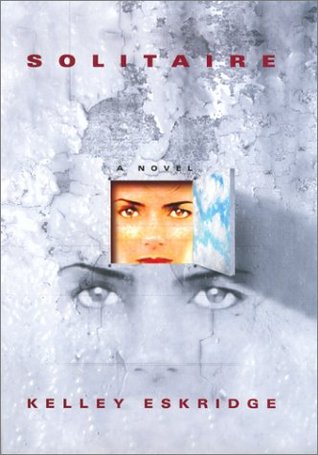Trigger warnings: Rape threats, mild violence, fat-shaming.
As soon as this book was released I knew I had to have it. Stories about Black queer women written by a Black queer woman? Yes, please! I was a little worried that I wouldn’t connect to them; they are all set in and around New York City, a place I’ve only visited once as a kid. It is a testament to Sullivan’s skill and talent that I was immediately drawn into this book. Not only that, her vivid descriptions of various part of New York made me feel as if I were right there with her characters. Indeed, I could smell the smoke and coconut oil in Earnestine’s father’s hair in “Blue Talk and Love,” the second story in the collection. Still, the specificity of the locales might alienate some readers as it draws in others.
The first story in the book, “Wolfpack” is drawn from real-life events: the trial and subsequent conviction of several young Black lesbians charged with stabbing the man who had threatened to rape them. The story begins with a directive: “This is a story that matters, so listen.” Those of us who remember this event are immediately drawn into this story, which retells the events of that summer night from several perspectives. The voice that resonated with me the most was Verniece’s (oddly spelled two different ways in the story). She tells her story with a quiet resolve: her desire to become a mother, her love for her girlfriend of two years, as well as her constant battles with her mother over her sexual orientation. “Wolfpack” is heartbreaking as well as anger inducing. Black lesbians are all too familiar with how attempts to protect ourselves from harm are often met with backlash. The judge that sentences these women suggests that they should have ignored the “I’ll fuck you straight,” as if those words didn’t imply an impending action. Sullivan does a wonderful job of transporting us back in time to that summer night, and in doing so, begs the question, what right do Black lesbians have to defend themselves from bodily harm?
Another favorite is “A Magic of Bags.” Sullivan transports us to a starkly different section of New York, that of the upper-middle class world of the Harlem Grange Homeowners’ Council, where “Most of the Grange’s young people spent their free time hopping subway turnstiles on the way home from their private schools, smoking looses in Riverside Park in feeble defiance of authority, plotting futures with one-another, most of which ended with masters’ degrees from MIT and expensive wedding receptions in opulent hotels downtown.” The story’s protagonist, Ilana, is alienated from this world, even her mother tries her best to maintain her place in it. Ilana is large and strange (she carries a bag of broken baby dolls wherever she goes), and sees herself as gifted, although it is not altogether clear the specific nature of her gifts. The story meanders a bit, as Ilana’s main purpose is to cause trouble for folks that she sees as victims of “horizontal thought.” This includes her mother, the women in the neighborhood, and her one friend, DeShawn. Still, Ilana’s keen observations on the trappings of domesticity and upper middle-class Black life are what make this story so interesting. I was a bit disappointed in the ending, as I feel that Sullivan might have missed an opportunity to push Ilana out of her comfort zone.
Other stories in the collection include “Saturday,” where eight year-old Malaya is forced to attend a weight loss support group with her mother because she has fallen off of the program wagon. Malaya daydreams of French fries and eats cold Chinese food in her room at night, yet often dreams of one day waking up “with a lightness and a spring.” Me-Millie and Me-Christine are the conjoined twins in “A Strange People,” sisters searching for a show that will accept them after their former slave-owner dies. The story offers keen observations on race, (dis)ability, performance, and desire in the 19th century.
Most of the stories in this collection focus on Black and brown bodies, queer in their sexual orientation, size, ability, and often a combination of all three. Sullivan reminds us that fat queer bodies are often the objects of ridicule and pain, but that they also are sites for joy and self-acceptance. We want, no NEED more from this writer.




S. Andrea Allen says
Reblogged this on S. Andrea Allen and commented:
My first Lesbrary review is up!
insapphicsunshine says
A beautiful, filling review, Stephanie. Your words have whet my appetite to give this book a read, especially considering its title drifted onto my horizon a while back. Truly, it is the sort of book I adore cuddling up with on leisurely evenings.
Yes, Sullivan’s is a voice that must tell its tales! I know this read will satisfy that place within me that only voices like hers can reach.
Claudia
S. Andrea Allen says
Thank you, Claudia! It’s an amazing book.